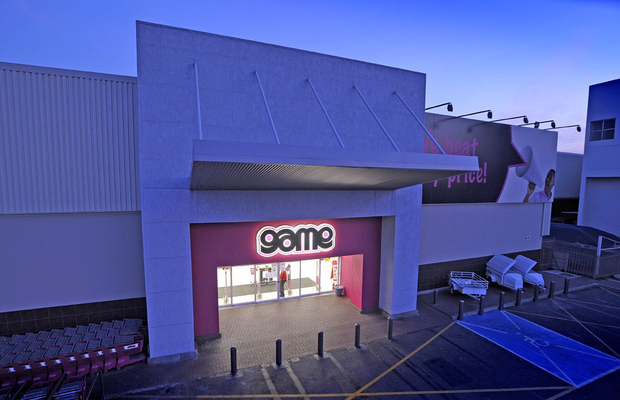Massmart has been releasing ugly announcements for so long that I’ve run out of puns. I’ve used Messmart quite often, along with references to the pink elephant in the room (Game). Their financial troubles have outlasted my creativity.
It’s hard to find positives in the story. One silver lining is that Massmart is the second largest retail website traffic generator in South Africa, so the group has made an effort to compete with Takealot. Massmart believes it has an opportunity to become the business-to-business and business-to-consumer omnichannel market leader.
Opportunities are great, but execution is what matters.
To be fair to Massmart, the riots were particularly terrible for the group in 2021. We all remember the shocking scenes on TV of the Game warehouse being looted. It says something for Game’s perception in the investment community that friends of mine joked that Game might be better off on a net basis from getting the insurance payout, since it may have struggled to sell the stock. People are incredibly bearish on Game’s prospects.
Total group sales decreased by 1.9% in 2021, with comparable store sales up 1.7%. This means that the store footprint decreased overall, as the group rationalised its operations and tried to steady the ship.
This needs to be viewed against the “other income” line which includes insurance proceeds related to the riot. This line increased by 280.9% to R1.1 billion. Group sales were R84.9 billion, so this would add another 1.3% to the sales line. It’s definitely not enough to make up for the real issues in the business.
Massmart Wholesale (mainly Makro) could only grow sales by 1.1%. Builders was the star with 7.1% growth. Unsurprisingly, Game was a disaster with sales down 8.7%. Game has 146 stores and 114 of them were updated into “Stores of Excellence” during the year – you can make up your own mind on how excellent they are.
It’s very difficult to manage gross margin when sales are under pressure, so the impact was amplified by a 191bps deterioration to 18.5%. A large part of this was driven by inventory write-downs in the riots, so the more sustainable view is a drop of 45bps to 19.9%. That’s still a rough result.
There’s some good news further down the income statement, with expenses down by 1.2%. It’s just nowhere near enough unfortunately, with trading profit down a whopping 83.3% to R195.4 million.
Below that line, there’s an impairment of over R1 billion, of which nearly R231 million is linked to the civil unrest and R507 million is linked to Game, which must be a swearword at Walmart by now. To add further insult to injury, there’s a foreign exchange loss of R178.5 million.
Here’s the much bigger problem: net interest expenses increased by 2.3% to R1.78 billion. That’s over 9x higher than trading profit, taking the net loss to an eye-watering R2.2 billion. This is largely due to lease expenses (and the crazy accounting of IFRS 16), so I must point out that interest-bearing borrowings (the type of debt that isn’t distorted by accounting rules) are “only” R6.5 billion.
Massmart’s headline loss increased from an already-terrible R924 million to a truly spectacular R1.5 billion.
If you’re wondering how things might look going forward, take note that liquor sales were prohibited for 110 days in this financial year, leading to lost sales of R1.8 billion and lost margin of R193 million. That would’ve nearly doubled trading profit, but wouldn’t have come close to achieving a net profit overall.
Other Covid-related costs came to R77.7 million. The TERS scheme and negotiated rental relief came to R62.2 million. This means that health and safety costs of the virus were largely passed on to government and landlords.
The store closures due to the unrest led to lost sales of R2.7 billion, with lost margin of R473 million.
Provided the deal goes ahead to sell Cambridge, Rhino and Massfresh to Shoprite (and I still have no idea why Shoprite is buying them), punters can look at continuing operations for a clue of what the performance might look like going forward. Those sales increased by 0.1%, so the story is hardly any better.
Capital expenditure in 2021 was nearly R1.4 billion. This is another challenge – retailers need to keep investing to stay relevant with consumers. When they are in deep trouble, trying to turn things around is extremely difficult.
Sales in the eight weeks to 20 February 2022 are up 1.7%, with comparable store sales up 5.1%. In continuing operations, those numbers are 3.6% and 6.6% respectively. That’s at least starting to sound respectable.
In a surprise to absolutely no one, there is no final dividend.
I continue to wonder how much patience Walmart will continue to have with Massmart. The share price is down nearly 27% this year.




